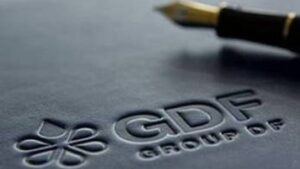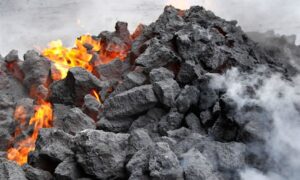
Group DF, which consolidates the assets of Ukrainian businessman Dmitry Firtash, including nitrogen chemicals companies of Ostchem holding, has signed a memorandum with Korean construction company Hyundai Engineering Co., Ltd on cooperation in Ukrainian projects in the construction and reconstruction of chemical plants for the production of fertilizers.
According to the holding’s release, cited by Interfax-Ukraine, the document provides for the creation of joint investment projects in the fertilizer industry both in Ukraine and in other jurisdictions. It is about the construction of new and reconstruction of existing chemical plants of Group DF. It is emphasized that the parties will cooperate in good faith and make all necessary efforts to achieve the common goal of rebuilding Ukraine.
“Group DF is developing a strategy to restore the chemical industry in post-war Ukraine and plans to meet the pent-up demand from the Ukrainian agricultural sector. With the support and cooperation of Hyundai Engineering Co, we will contribute to the revival of Ukraine’s economy and strengthen the chemical industry. The Group is also considering all kinds of cooperation with Hyundai Engineering Co. in projects to restore and expand its logistics infrastructure,” said Robert Shetler-Jones, CEO of Group DF International GmbH.
“The company is ready to consider options for participating in the post-war recovery of Ukraine’s chemical industry. We sincerely believe in the prospects of infrastructure restoration, reconstruction and construction of gas processing plants,” said Lim Seung Jae, Senior Vice President of Hyundai Engineering Co., Ltd.
Hyundai Engineering Co, Ltd is a Korean multinational contractor for the engineering, procurement and construction of oil and gas processing plants, including fertilizer and chemical plants.
Group DF consolidates Dmitry Firtash’s assets in the gas distribution, chemical, titanium and port industries, as well as in agriculture and media.
Ostchem is Group DF’s nitrogen holding company that unites the largest mineral fertilizer producers in Ukraine. It includes Rivne Azot, Cherkasy Azot, as well as Sievierodonetsk Azot and Stirol, which are not operating and are located in the occupied territories.

Ukrainian coke and chemical plants in January of this year imported 860,000 tonnes of run-of-mine coking coal and coal concentrate for coking, which is 5.2% more than in the same period last year.
According to an information statement of the Ukrmetalurgprom association on Monday, the supply of Ukrainian coal for this period amounted to 280,000 tonnes, which is 11.6% lower than in January 2021.
In general, in January 2022, Ukrainian coke and chemical plants received 1.14 million tonnes of coal for coking, which is 0.5% more than in January 2021. At the same time, the share of imported coal in the total supply amounted to 75.5% in January 2022 versus 72.2% in January 2021.
Some 772,000 tonnes of coke (106% compared to January 2021), including 668,000 tonnes of Ukrainian origin (95%), and 104,000 tonnes of imported coal (4.16 times more) were supplied to Ukrainian steel enterprises in the specified period. The share of imported coke in the total supply amounted to 13.47% versus 3.43% in January 2021.
In addition, last month, 237,000 tonnes of scrap metal were collected (78.2% compared to January 2021), of which 231,000 tonnes (81.3%) were supplied to Ukrainian consumers as imported. Export of scrap metal in January amounted to 6,000 tonnes (31.6% compared to January 2021).
It is noted that the provision of steel enterprises with Ukrainian iron ore raw materials in January 2022 was carried out in accordance with the needs of metallurgical production. There were no imports of iron ore. Export of iron ore for the first month of the year amounted to 3.85 million tonnes (104.3% compared to January 2021).
According to updated data of Ukrmetalurgprom, in January 2022, plants produced some 2.785 million tonnes of sinter (101.3% compared to January-2021), 807,000 tonnes of 6% moisture gross coke (95.5%), 1.786 million tonnes of cast iron (98.2%), 1.851 million tonnes of steel (100.7%), 1.672 million tonnes of rolled products (100.6%), and 91,000 tonnes of pipe products (168.2%).
As of February 11, 2022, of the main operating production facilities, 17 out of 21 blast furnaces, seven out of eight open hearth furnaces, 13 out of 16 converters, five out of 15 electric furnaces and 16 out of 17 continuous casting machines were in operation.